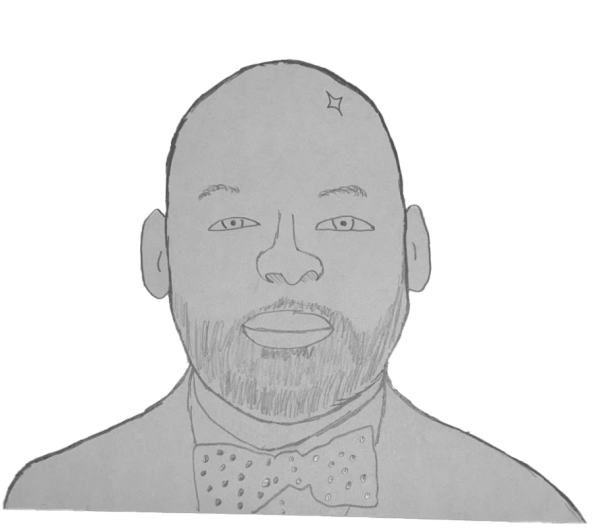What’s at Stake on November 8th
A breakdown of the presidential election
Throughout the history of the United States, people have fought and suffered to be able to vote. Nevertheless, in the last twenty years, no more than sixty-five percent of eligible voters cast a ballot in any presidential election. Historically, voting has occurred in person on election day, the Tuesday following the first Monday in November. However, today, dependent on the state, one can often register online and vote early by mail. This increases convenience and opportunity for eligible voters.
With this year’s election rapidly approaching, polls predict a record low voter turnout that is likely due to high disapproval ratings for both major party candidates. Now, more than ever, each vote matters. Garfield senior and eligible voter Hannah Phelps can not stress this enough.
“It’s really important for people to vote. It’s the most basic level of civic engagement you can have,” said senior Hannah Phelps. “Something I can contribute is my vote and it makes me feel like I have a little bit of power in this big world where nobody knows my name.”
The United States is on the verge of making history. If Hillary Clinton is the first woman elected as president, she will shift the patriarchal pattern that our country has held for the last two centuries. This Democratic nominee has inhabited the political sphere for more than three decades, occupying the positions of First Lady, Senator of New York, and Secretary of State. Because of her extensive experience and expertise, Clinton has the full-hearted support of many voters, and those ineligible alike. One of these fans is sophomore Sam Patz.
“She’s been in the government and the political system for her entire adult career,” says sophomore Sam Patz. “She has so much experience in terms of how the office works.”
Hillary Clinton is currently in the position to win all the states President Obama won in 2012, and also has a probable chance of winning North Carolina and Arizona. This will put her well over the 270 electoral votes needed to win the entire race. Following the presidential debates and the release of the infamous “Trump Tapes,” Clinton has excelled in the polls, with the upper hand throughout the race, and currently has an eighty-five percent chance at winning. Regardless, the election has fluctuated greatly over the last few months. The race was extremely narrow immediately following the conventions and right before the first debate. At this point, anything could happen.
Some of Clinton’s most significant campaign promises include a gun control reform, complete access to reproductive healthcare for women, equal taxation, an increase of the minimum wage, ending mass incarceration, and investing in clean energy solutions.
Despite her current advantage in the polls, she is commonly perceived and portrayed as dishonest and deceiving. Many general election voters in the primaries considered Clinton unfavorable. She possesses the lowest approval rating among Democratic nominees in the last ten presidential elections. Clinton carries the weight of her husband’s misdeeds, and has been the focus of an FBI investigation regarding her personal emails. However, these controversies pale in comparison to the threat of her opponent, Mr. Donald Trump.
A tax evader. A sexual predator. A racist. A xenophobe. A liar. A misogynist. All words that have been used to characterize Donald Trump, who, in less than two weeks, could be chosen as the leader of our country. The businessman and reality television mogul demeans and insults women and people of color, instigates violence, and has vowed to ban all Muslims from entering the United States. The Republican nominee has come under fire throughout his campaign for his slanderous and dubitable comments. Most recently, he has insulted his opponent in the debates and has repeatedly said that he won’t accept the results of the election unless he is victorious.
“Especially lately, Donald Trump has proved that he’s not a good candidate,” said Patz. “He’s already made so many enemies before he’s even been elected. He’s not even the president yet, so just imagine how that could play out if he was actually in office.”
The outlandishness of this election requires committed voter participation. The consequences for our country may be incomprehensible and irreversible should we find ourselves under the leadership of a man possessing no political experience and an uncontrollable temper. Disunity among civilians would reign, relations and agreements with other countries would dissolve, and the core principles of our country and government would dissipate. It is extremely crucial that people fulfill their duty as citizens and cast a vote for the president of the United States this November. Every vote makes a difference.
The Electoral College
The popular vote isn’t what ultimately determines the election. The candidate who will fill the role of President of the United States is decided by the Electoral College. The Electoral College is made up of 538 electors that are responsible for each state. These electors are the sum of the nation’s Senators and Representatives plus the three electors assigned to the District of Columbia. The number of electoral votes in individual states differ based on population. The candidates who wins the majority of the votes in the state wins the electoral votes for that state. To win, a candidate needs 270 electoral votes.




